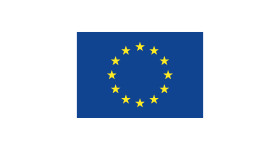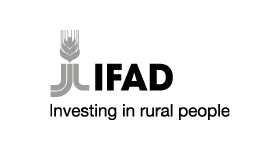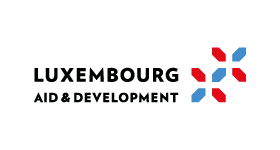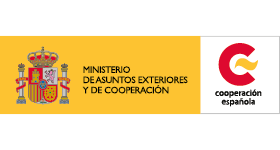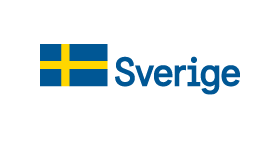RemitSCOPE Africa is a component of the PRIME Africa project – a 4 year project funded by the European Commission and managed by the Financing Facility for Remittances (FFR) within the UN International Fund for Agricultural Development (IFAD). PRIME Africa aims to reduce the costs of remittances from the EU to Africa and enhance financial inclusion.
Within these goals, several of PRIME Africa’s activities are addressed through the RemitSCOPE website including addressing the data gap and increasing market competition. More information on the market can be leveraged to create better products and services for diaspora members and their families.
DMA Global, a development consultancy firm, has led the research and data compilation of RemitSCOPE. This website was built by ADL and the dashboards were built by Visualitics.
Industry input and feedback
RemitSCOPE is the first iteration of an ongoing process to develop a “one-stop-shop” for international data on remittances. We would appreciate your comments to inform our process of continual improvement. Future iterations are planned for regional and national remittance and remittance-related data.
As detailed in the RemitSCOPE Methodology, some of the data is collected through RemitSCOPE primary research. This is a challenging process for every country, and as markets are continuously evolving, we provide data to the best of our knowledge at the time of data collection. As such, we welcome any additional information and market intelligence you have to ensure data sources are accurate and up to date.
RemitSCOPE is built by the remittances community, for the remittances community and needs your input and insights to keep it up to date and accurate. Please share your feedback through the Contact Us at the bottom of the page.
Follow us on social media (Facebook and Twitter) and sign up to our newsletter to be informed when new data, features and tools are added.
Wider aims and future plans
RemitSCOPE is an industry-first compilation of all remittance-related data that is publicly available. This is just the first step in widening public and private sector understanding of remittance markets across the world. This unique platform is designed to spearhead progress across the industry to improve the quality, breadth and depth of publicly available data.
RemitSCOPE is currently available in Africa, with Latin America and the Caribbean coming soon, followed by Central Asia. This approach assures standardization and harmonization across countries and continents and is the first global one-stop-shop for remittance and remittance-related data.
As more data becomes available on remittances and relating to remittances, and as industry demands it, RemitSCOPE will respond with the addition of new dashboards and tools for analysis.
Central Bank Accreditation & Call to Action from Central Banks
RemitSCOPE forms part of a larger agenda to improve the quality, availability and disaggregation of remittances data globally to inform government policies, achieve financial stability, support AML-CFT, promote competition and inform new product development.
RemitSCOPE asks Central Banks to review and accredit the information available on their Country Profile annually. Central Banks play an important role in providing financial market data and in providing clear understanding of the operating environment for financial service providers. For the longer-term sustainability of RemitSCOPE, it is necessary for Central Banks to provide data on their respective jurisdictions.
If data on the Country Profile has been reviewed and approved by a Central Bank, then please look for the Central Bank Accreditation toggle at the top of the Country Profile.
RemitSCOPE aims to support Central Banks and other industry stakeholders to improve the quality, accuracy and timeliness of remittance data and other industry indicators. RemitSCOPE aims to standardize data across countries and continents by working with Central Banks to harmonize definitions and classifications. Standardization aims to go beyond remittance flow data methodology, and to challenge Central Banks to produce more disaggregated remittance data, as well as data on operating environments and remittance market structure. Remittance markets are heterogeneous with very different operating environments and market structures. The opacity of remittance markets makes and the regulatory environments they exist within is a barrier to market entry. Standardization of data will bring transparency and allow data to be compared across countries and continents. IFAD and the FFR are committed to promoting and advocating for good practice in terms of market intelligence.
Sustainable Development Goals and Global Compact on Migration
The 2030 Agenda for Sustainable Development, adopted in September 2015, is a global commitment to eradicate poverty and achieve sustainable development by 2030, ensuring that no one is left behind. Its 17 specific Sustainable Development Goals (SDGs) address the major challenges facing the world today.
Remittances can contribute to reaching the Sustainable Development Goals (SDGs) in a variety of ways:
- At household level: by recognizing the positive socioeconomic impact of remittances on families and communities (SDGs 1-6);
- At community level: by supporting policies and specific actions to promote synergies between remittances and financial inclusion, encourage market competition and regulatory reform, and mitigate any negative impact resulting from climate change (SDGs 7, 8, 10, 12 and 13);
- At national level: by ensuring that the revitalized Global Partnership for Sustainable Development – as outlined in SDG 17 – and the Global Compact on Migration promote collaboration across all sectors involved in remittances
SDG 10.c commits, by 2030, to reduce to less than 3 per cent the transaction costs of migrant remittances and eliminate remittance corridors with costs higher than 5 per cent. Migrant remittances, however, contribute directly and indirectly to several SDGs in addition to 10.c, as outlined in IFAD’s Remittances, investments and the Sustainable Development Goals report.
The crucial contribution of migrant workers, through remittances and investments, has also been recognized in the Global Compact for Safe, Orderly and Regular Migration, adopted in December 2018. Its Objective 20 indeed calls for specific actions to maximize the impact of remittances and includes the International Day for the global community to get engaged – the International Day for Family Remittances (IDFR). Implementation of Objective 20 has been assessed during the first International Migration Review Forum (IMRF), which took place on 17-20 May 2022. Remittances were recognized to be crucial to unlock opportunities for migrants and their families, particularly in light of the shift towards greater digitalization to further enhance financial inclusion.

